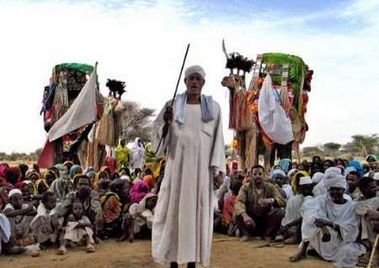Ex-Janjaweed leader sponsors tribal reconciliation conference in North Darfur
September 26, 2014 (KHARTOUM) – A reconciliation conference between Zaghawa and Rizeigat tribes has convened two days ago in the locality of Kutum in North Darfur state under the auspices of the Sudanese Awakening Revolutionary Council (SARC) led by the Darfurian Arab Mahameed clan chief Musa Hilal.

Zaghawa and Rizeigat estranged relations dates back to clashes which erupted 5 years ago between the two tribes in the locality of Kutum, 100 km north west of North Darfur capital of El-Fashir.
Armed clashes often break out between tribes and clans loosely divided between nomadic and sedentary communities over natural resources.
SARC spokesperson, Mohamed Ahmed Abakar, told Sudan Tribune that Hilal vowed to hold reconciliations among all feuding tribes in North Darfur state, adding that mending ties among tribes is the only available option for resolving the crisis in Darfur.
He noted that the ongoing conflict between the government and the rebel groups had weakened the strong relations among Darfurian tribes.
SARC had previously sponsored a reconciliation conference between Beni Hussein and Rizeigat (Aballa) tribes in Al-Siraif locality.
Abakar added that SARC would continue to hold tribal reconciliations without consulting the government of North Darfur, accusing the governor, Osman Kibir, of opposing any reconciliation efforts carried out by Hilal to end tribal clashes.
He said the conference set up a joint tribal mechanism to address security problems in the area besides forming a committee to follow-up on the implementation of the outcome and recommendations of the conference.
SARC spokesperson underscored the two tribes enjoy strong ties, calling upon local administration in North Darfur state to play its role in amending ties among tribes.
Hilal stands accused by many human rights groups of leading a terror campaign against the African tribes Sudan’s western region of Darfur.
But he has denied any wrongdoing and told Human Rights Watch (HRW) in a videotaped interview in 2005, that he only recruited militias on behalf of Sudan’s central government.
The Darfur conflict began in 2003 when an ethnic minority rose up against the Arab-dominated government in Khartoum, which then was accused of enlisting the Janjaweed militia group to help crush the rebellion.
The United Nations Security Council (UNSC) imposed travel and financial sanctions on Hilal and three other individuals in April 2006. However, unlike other individuals, including Sudanese president, Omer Hassan al-Bashir, he is not wanted by the International Criminal Court (ICC).
(ST)
